GUIDE TO CHICAGOLAND





There has never been a better time to play tennis! Courts in Chicagoland are busy, and our favorite sport grew by more than one million players across the country last year. Tennis is on the rise and this guide is your ticket to tennis in Chicago.
The United States Tennis Association (USTA) is the national governing body for tennis and the Chicago District Tennis Association (CDTA) or USTA Chicago serves that role locally. We are made up of a small full-time paid staff, a volunteer Board of Directors and many, many generous volunteers across the metropolitan area. Our vision is to transform lives through the game of tennis through our mission of creating, sustaining, and growing enthusiasm for the game of tennis throughout Chicagoland.
As a matter of fact, we are the ENERGY behind tennis. We share a passion for the sport because of the socialization benefits and competitive nature, but also the enormous health benefits. A long-term study
(the Copenhagen City Heart Study) published by the Mayo Clinic showed tennis players live an additional 9.7 years longer, on average, than sedentary individuals. This life expectancy ranked highest among all sports included within the study, beating out soccer by 5 years (4.7), cycling by 6 years (3.7), swimming by 6.3 years (3.4) and jogging by 6.5 years (3.2). Participation in racquet sports, including tennis, reduces risk of all-cause mortality by 47 percent and cardiovascular-related death by 56 percent.
To support our vision and mission, USTA Chicago strives to act as a type of Chamber of Commerce for all things tennis in Chicagoland. Have a question about leagues (USTA and non-USTA), lessons for your kids, parks that have indoor courts open to the public, or funding to repair your facility? Are you wondering where to find a wheelchair tournament, how to navigate the world of junior tennis, where to get your racquet restrung, or how to find a Tennis on Campus program? Or, perhaps you are simply looking for a fun group that plays tennis on Thursdays and then eats tacos? JUST ASK US!
We are excited to see you on the courts this year and hope you can be part of the Chicagoland ENERGY of tennis.

Tara Moore, USTA Midwest Section
Jeff Siegel, Data Visualization
Joe Tedino, Editorial Consultant
Jean Tumbaga, Graphic Design
Jill Siegel, Executive Director
Mary Beth Bowman, Tennis Service Representative
Nancy Manolis, Adult League and Special Project Coordinator
Barb Rueth, Director of Junior Play
Catherine Thom, Communications and Outreach Manager
Tyrin Wages, Adult Play Coordinator
Gladiator Tennis is a flex tennis league in the city and suburbs of Chicago. Founded in 2007, we are in our 16th year, with over 2,000 singles and doubles players that will be playing in 2022. Our goal is to get you back in the game of tennis. If you haven't been playing for a few years due to the cost of playing club tennis, or because your schedule cannot handle a commitment to a specific time each week, we have the answer. We have a flexible scheduling format, and it only costs $42 to join for each 7 match season. You will meet dozens of new players at your skill level, and compete for playoffs and prizes.

Go to www.gladiatortennis.com for more information.

Guided by the belief that lives can be transformed through the game of tennis, USTA Chicago, a District of the USTA/ Midwest Section, creates, sustains, and grows enthusiasm for the game of tennis throughout Chicagoland. We are a nonprofit organization committed to promoting tennis and its physical, social, and emotional health benefits. We envision a community where tennis is accessible and available for all people to play.
USTA Chicago, also known as the Chicago District Tennis Association, has a widereaching impact. The Chicago District encompasses the 284 zip-codes of Cook, Lake and DuPage counties – that’s 3,340 square miles. We operate leagues, tournaments, and other programs and events throughout the area for more than 5,300 junior and 3,000 adult players and nearly 10,000 members of all types. We represent the interests of nearly 500 public court and private club facilities
that are home to more than 4,500 tennis courts. CDTA supports the community providers, facilities, and coaches that directly deliver the sport. The many health and social benefits of tennis have made it more popular than ever. Whether you are a seasoned player looking to improve your skills or new to this great game, we can help you connect with a myriad of play opportunities.
CDTA Mailing Address
2027 W. Division Street #171 Chicago, IL 60622 | 847.803.2382
Connect with Us on Social Media
USTAChicago
ustachicago
ustachicago
Want to be included in next year’s Guide to Chicagoland Tennis, contact us at info@chicagodistricttennis.com.
Tennis Ballerz is the premier tennis pro shop in the Chicago land area, with three locations:





Evanston (847) 425-0103 1623 Sherman Ave. Evanston, IL 60201
Naperville (630) 946-6354 924 W 75th St, Naperville, IL 60565

Darien (630) 537-1914 6800 IL-83, Darien, IL 60561

Same day racquet stringing. Huge selection of racquets, strings, shoes & more.


Racquet demo program. Pickleball racquets. www.tennisballerz.com

Two USTA districts exist in the Chicagoland area. The Chicago District comprises Cook, Lake, and DuPage Counties. The Northern Illinois District lies to the west. The Mid-South Tennis Association manages USTA activity in downstate Illinois. From USTA leagues and tournaments, to park play, to inter-club play, and beyond, USTA Chicago estimates that there are about 350,000 tennis players of all types in the Chicago District. Facilitating all this play in the three-county Chicago District are:
17+ COMMUNITY TENNIS PROVIDERS
15+ ADULT LEAGUE PROGRAMS
20 COLLEGE PROGRAMS









270+ HIGH SCHOOL TEAMS
460+ REGISTERED NET GENERATION PROVIDERS
4,500+ COURTS TENNIS (316 INDOOR COURTS)
375+ TOURNAMENT OFFERINGS
Player spending on tennis in the Chicago District is significant. The USTA League program alone generates more than $1 million in revenue. USTA Chicago estimates that $82.5 million is spent annually on shoes, apparel, racquets, balls, and strings.
WEBSITE/EMAIL
The ACE Project activechildrenexcel.org
Barrington Area Tennis Association barringtontennis.com
Chicago District Tennis Association usta.com/chicago
Chicago Prairie Tennis Club cptctennis.com
Evanston Community Tennis Association evanstontennis.org
Great Lakes Adaptive Sports Association glasa.org
Love to Serve, Inc. ltstennisacademy.us
Maywood Tennis Association maywoodtennis.org
Midwestern Tennis Association midtac.jrjox.com
Multicultural Tennis Association, Inc. pres.mta@gmail.com
Second City Tennis secondcitytennis.com
Serving Up Hope servinguphope.org
Sports for Life rw333@yahoo.com
Tennis Opportunity Program, Inc. toptennischicago.org
Topspins and Violins Bernardmurray1@me.com
XS Tennis and Education Foundation xstennis.org
Youth Education Sports yesevanston.com
ADULT LEAGUES
WEBSITE/EMAIL
CATS catstennis.org
Chicago Net Sports chicagonetsports@gmail.com
Chicago Park District Tennis Association cpdta.org
Chicago Sport & Social Club chicagosocial.com
Chicagoland Indoor Tennis Association citatennis.net
ChiTown Tennis chitowntennis.com
Fox Valley Women's Tennis League foxvalleytennis.com
Gladiator Tennis gladiatortennis.com
Greater Suburban Indoor Traveling League greatersubrubantennis.com/gsitl
Illiana Indoor Tennis League cfox108@gmail.com
Impact Team Tennis info@chicagodistricttennis.com

Jack Barry Indoor Tennis League jbitl.com
North Shore League northshoretennisleague.tennisscores.com
Northern Illinois Traveling Tennis League nittl.com
Play Your Court playyourcourt.com
Second City Tennis secondcitytennis.com
Skokie Tennis Association howardtennes@gmail.com
USTA Leagues adultleague@chicagodistrictttennis.com
UTR Flex League app.universaltennis.com/clubs/13529
JUNIOR LEAGUES WEBSITE/EMAIL
USTA Junior Team Tennis info@chicagodistricttennis.com
Gladiator Tennis gladiatortennis.com
UTR Flex League app.universaltennis.com/clubs/13529
(630) 907-9600
athletic-center/vaughan-tennis-center
690-0887 wheatonsportcenter.com
(847) 256-9676 wilmettepark.org/tennis-club 47. XS Tennis Village
(773) 548-7529 xstennis.org 48. Ace Performance
420-3365
948-5330
Park (630) 837-6300 hpparks.org/ccac
(815) 838-3621, ext. 0 lockportpark.org/challenge-fitnessinformation 52. Eola Tennis Academy
556-1199
853-0626 sites.google.com/view/dwtchome
From tennis to pickleball to platform tennis, Chicagoans flocked to racquet sports after the pandemic hit because they offered built-in social distancing and were a great way to get exercise with friends and family.

Besides that, players soon realized that skill transfer could be as easy as swinging a racquet because of the many parallels among the sports.
“I think that there are a lot of similarities in all three sports,” said racquet sports instructor Christi Turdo, who owns the Glenbrook Racquet and Paddle clubs. “The dink (in pickleball) is basically a drop shot in tennis. If you are a high-level tennis player, you can do all three well.”
It’s no surprise then that in Chicago, all racquet sports – tennis, pickleball, paddle, and others -- are thriving, which speaks to the enormous social and health benefits of these sports and their complementary nature.

A study published in the British Journal of Sports Medicine found that people who played tennis or other racquet sports had a 47% lower risk of all-cause mortality compared with those who played no racquet sports. Another study in Denmark compared eight different sports and found that tennis players had the greatest gain in life expectancy—9.7 years longer than people who did not exercise.
Tennis and pickleball top participation trends for all racquet sports, which include platform or paddle tennis, racquetball, and squash, to name a few others. In 2022, tennis participation in the U.S. increased for the third consecutive year, adding a million players for a total of 23.6 million at year-end, according to the Tennis Industry Association. This represents an increase of 33 percent since 2020. Pickleball grew by 85.7 percent in the past yar to 8.9 million players over the age of six, according to the Sports & Fitness Industry Association, which also reported drops of 3 percent for squash and 5.6 percent for racquetball. Platform tennis participation nearly doubled.
In Cook, DuPage, and Lake counties – the areas served by the USTA’s Chicago District — more than 350,000 people participated in tennis in 2022, contributing $140 million to the local economy. USA Pickleball, the sport’s governing body, estimates that 138,000 people played pickleball in the three-county area last year.
The American Platform Tennis Association has more than 31,000 members, a near doubling since before the pandemic began. In Chicagoland, around 8,500 men and women regularly play the sport, according to APTA.
“Public paddle has been the core of its growth,” said Jason Stanislaw, the former CDTA president who manages tennis and platform tennis for the Wilmette Park district. By the end of 2023, Wilmette will have 18 platform tennis courts at three locations.
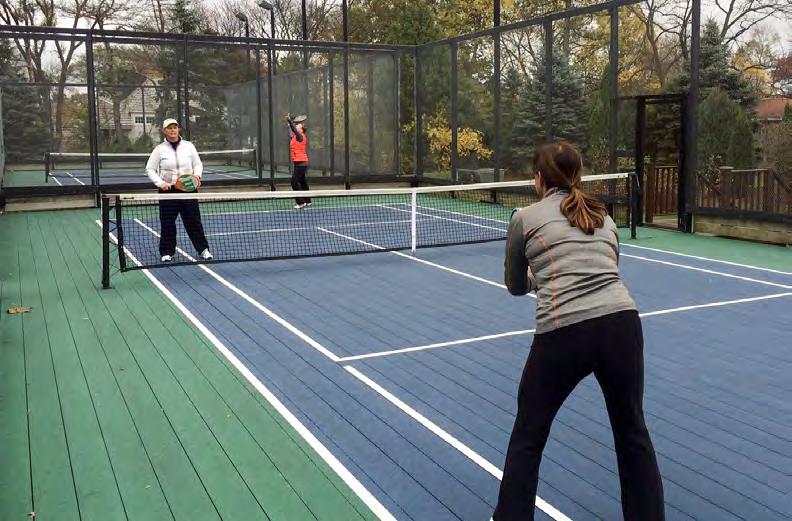
Industry officials say there is a 40 percent crossover rate between sports when a club has a successful total racquets program. “Our research with providers reveals that while pickleball may be bringing new players to their facilities, 30 to 40 percent of them start playing tennis as well,” Jill Siegel, Executive Director of the CDTA, said.
Pickleball is among the nation’s fastest growing sports because it’s easy to learn, easy on the body and adults and kids with mixed skills can play on the same court.
“The great thing about pickle – and the reason why people love it -- is you can learn it in 30 minutes and have fun,” said Glenbrook’s Turdo. “You can’t do that on a tennis court.”
Cardio tennis classes have had similar success using lower compression balls that make it easier for players at different skill levels to compete with each other and also get a good workout. Dozens of clubs in the Chicago area have robust cardio tennis programs.
Check out the Organization Listing in this Guide to find out where you can play cardio tennis or visit www.usta.com/chicago/cardiotennis.
Chicago tennis facilities offer a range of playing surfaces that can add to the challenges and enjoyment of tennis.

The two primary types of playing surfaces locally are hard courts and green clay. There also is one location – the XS Tennis Village on Chicago’s south side – that has four courts made of American red clay, a surface similar to the clay used at the at the French Open and other European tournaments.
Hard court surfaces are made of either concrete or asphalt and covered with a layer of colorful acrylic. They provide a fast-paced, high-bouncing game with less sliding than is possible on clay courts, and they are the most common surfaces in the Chicago area.
Approximately 80 percent of the public and private courts in Chicagoland are hard courts, according to Cy Dofitas, national business development manager for Har-Tru, which provides racquet sport court surfaces, consultation, and equipment.
“The bounce on a hard court is the truest bounce of all surfaces,” Dofitas said. “In terms of playability, the ball moves a lot faster and it sits up about waist level after it bounces.”
Many tournaments on the professional ATP and WTA tours use hard surfaces because they are durable, require relatively low maintenance and can be used for both indoor and outdoor competition.
Clay courts are made of crushed brick or stone and provide a slower, lower-bouncing game that allows for more sliding. In the Chicago area, tennis facilities use clay made from a natural green stone found in the Blue Ridge Mountains of Virginia. The stone’s density and shape allow it to be packed tightly for a smooth playing surface. Tennis players can find green clay courts open to the public at the Diversity Tennis Center in Chicago, the South Barrington Club, the Park District of Highland Park, the Oak Park Bath & Tennis Club, and The Racket Club at Crystal Lake Park District. There are also several private clubs in Chicagoland that sport Har-Tru’s green clay surface.
“On clay, the game slows down a bit more and that results in longer rallies,” Dofitas said. “And, you see people move to the ball by sliding, either laterally or forward. In Europe, where they play predominantly on clay, they know how to slide into the ball. Coaches teach sliding first, even before they teach how to hit a ball.”
Clay allows players to slide and recover control, and acts as a cushion that is easier on the body. A recent study showed that clay surfaces create seven times fewer injuries than other court surfaces, according to Har-Tru.
Tennis authority Dave Rineberg, the former hitting coach of Serena and Venus Williams, says players need different strategies for each surface.
“Understanding and trusting the bounce on a hard court is what allows you to take the ball on the rise or sit back and wait for it to drop,” Rineberg says in his book, The 100 Best Tennis Lessons. “Aggressiveness and power are rewarded on the hard fast surface so those players who have powerful serves and an all-court aggressive style tend to do best.”
On clay, Rineberg points to two shots that can separate the winners from the losers: the backhand slice and the backhand drop-shot. The former can neutralize topspin and lift low balls, while the latter can turn a defensive situation into an offensive one.
“A player can get out of trouble or create offense with these two shots,” he says. “Even players not known to hit either shot will attempt both because of the tempting advantages.”
Grass tennis courts, like those found at the Wimbledon Championships, are composed of a thin layer of grass on top of a base of soil or sand. They provide a low-bouncing, fast-paced game and are typically the fastest type of tennis court. Playing on grass is often considered a unique challenge and can offer a different playing experience compared to other surfaces.
The closest grass courts to Chicago are at the Sand Valley Club in Nekoosa, WI, which has 15 outdoor courts, and the All Iowa Lawn Tennis Club in Charles City. The AILTC boasts a single court set on a 770-acre farm that is open to the public to enjoy what the owner calls “the ultimate Wimbledon experience.”

Tennis enthusiasts in Chicago benefit from having access to public hard and clay courts to improve their skills and add an extra dimension to their game.
“People should know that they have access to different types of court surfaces, including clay,” Dofitas says. “The mindset sometimes is ‘If I want to play on clay, I have to pay a lot.’ In Chicago that’s not the case. Clay courts can be found at several public facilities. That’s an option.”
Of all the sports and other activities available today for those looking to get active and healthy, why should you choose tennis? Numerous studies have shown that tennis — over most other sports — is one that improves your overall health in a variety of ways. Known as “the sport of a lifetime,” tennis not only provides many physical benefits, it also provides important mental and social benefits for people of all ages.
• Burns Calories: According to the Mayo Clinic, playing one hour of singles can burn between 580-870 calories.
• Keeps Your Heart Healthy: The Cleveland Clinic says tennis is “an ideal sport for a healthy heart.”
• Develops, Tones and Strengthens Muscles: Works both your upper and lower body.
• Increases Bone Strength and Density: No matter your age, weight-bearing activities like tennis are important for bone health, according to the National Institutes of Health.
• Improves Flexibility: Because you work all your limbs, joints and muscles when you play tennis, an expert panel at ESPN ranked tennis in the top 12 out of 60 sports in terms of flexibility.
• Improves Balance, Coordination and Reaction Time: By moving and adjusting to hit the ball, tennis helps overall body coordination, and by constantly judging the timing of the ball, it improves hand-eye coordination.
➜ Tennis players live longer
➜ Playing just 3 hours/week will reduce your risk of heart disease by 56%.
➜ A study from the Copenhagen City Heart Study shows that playing tennis can extend your life by nearly 10 years.
• Develops Your Mind: From alertness to tactical thinking, tennis enhances the neural connections in your brain. According to a 2013 USTA study, kids who play tennis regularly get better grades.
• Helps Develop a Strong Work Ethic: Through lessons and practice, tennis reinforces the value of hard work.
• Develops Self-Discipline: Regular practice keeps you disciplined in your approach to improvement.
• Helps Manage and Reduce Stress: The physical and mental challenges of the sport increase your capacity to deal with stress.
• Improves Self-Image: According to a Southern Connecticut State University study, tennis players scored higher in vigor, optimism, and selfesteem while scoring lower in depression, anger, confusion, anxiety, and tension than other athletes or non-athletes
• Develops Social Skills: Tennis outperforms all other sports in developing positive personality traits based on a study out of Concordia University.
• Develops Teamwork and Sportsmanship: Whether it’s playing on a doubles team, league team or school team, tennis helps develop your ability to communicate and work together.
• Connects Family and Friends: Tennis is great for the whole family no matter what your age. With minimal equipment needed and plenty of courts nearby, it’s easy to bring a friend or find one at the courts.
• Helps in Managing Mistakes and Solving Problems: Being able to move past mistakes is critical, whether in tennis or in life. Tennis is a sport that is based on evaluating angles, geometry and physics to get the best result, which translates into better problem-solving off the court.
On the last Sunday in January Beck Saltzman set his alarm for 2:30 a.m. to watch the Australian Open final. Alert and fixated in front of the television, Beck witnessed his idol, Novak Djokovic, defeat Stefanos Tsitsipas in straight sets to win a 10th AO title.
That might seem like a fairly typical thing for a die-hard 13-year-old tennis fan to do, but Beck is no ordinary fan. He grapples with autism spectrum disorder and before finding tennis he suffered from high anxiety, antisocial behavior, and an inability to follow a series of simple directions.
All that changed when his parents, Eric and Staci Saltzman of Lake County, enrolled him in the junior tennis program at Highland Park’s Deer Creek Racquet Club. Today, Beck plays tennis every day. He wins about 70%

of his matches, soaks up player statistics like a sponge and aspires to deliver a speech at school titled, “U.S. History by Beck.”
“Beck is one of the most passionate students I have,” says his longtime tennis coach Hristo Pandulev at Deer Creek. “There is no one now who is more dedicated.”
Katy Wilhelm, Beck’s 7th-grade teacher at the Fusion Academy, says the teenager’s new attitude has spilled over to school. He’s more focused and he has made new friends.
“When you meet him, he is the coolest kid,” Wilhelm says. “He brings so much light to the campus.”
It wasn’t always this way. Beck is a highfunctioning autistic youngster, but the disorder challenged nearly every aspect of his early life, Staci Saltzman said. He had
trouble tying his shoes, he couldn’t ride a bike, he didn’t enjoy being with other children his age, and didn’t say a word until he was three years old.
“Reading and learning in school has always been a problem,” Staci says. “Autism also affects motor skills. A lot of people with autism have decreased strength. It’s where the brain literally has trouble connecting and sending signals to the body.”
Beck’s commitment to tennis and the support of Coach Pandulev and Coach Kevin Aquino at the College Park Athletic Club in Bannockburn played a vital role in his development and maturity, Staci said.

Experts agree that an individual sport like tennis is a useful tool for helping autistic children learn and function better in life.
“Tennis is so unique because it is primarily an individual sport unlike soccer or football or basketball,” says Miles Vidreiro, a certified behavioral analyst and program manager at the nonprofit ACEing Autism. “As an individual sport and a social sport, it allows players to be met at their skill level and it offers opportunities for cooperative play.”
Scientists who study the positive effects of physical activity point to the release of chemicals known as endorphins, which promote positive feelings in the body. For individuals with autism, these positive emotions can lead to higher cognitive functioning, better social skills, fewer tantrums, and less need for moral support.
“Tennis promotes learning, thinking, and socialization,” said Jeannie Lozowski, a registered nurse and former DI college player who ran clinics at Love Serving Autism and ACEing Autism. “Tennis has a lot of amazing aspects that make it so beneficial, especially for individuals with autism.”

Yet Beck said he felt no joy from tennis in the beginning. Coach Pandulev remembers that when Beck joined his class at age seven, the boy would drop his racquet or fall on the court and cry during each lesson.
“It was almost like the first time each day,” Coach Pandulev said. “I tried to connect. I’d ask him questions. His mother told me
he was good at math so I created games where he could add up points I gave for little things. He was staying engaged by calculating how he was playing.”
Humor also played a role. “When he would drop to the ground, it was very dramatic,” Coach Pandulev said. I called him Mr. Hollywood and told him, ‘You’re going to be a good actor one day.’”
Beck and his mother both agree that the coach’s approach, sometimes with humor but always with empathy and a focus on form and fundamentals, helped Beck stay in the game.
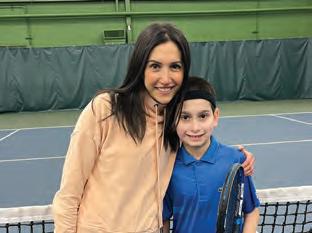
“I didn’t like tennis at first,” Beck says. “But he stayed patient with me and keep going, and he got me to love it.”
At school, teachers use Beck’s passion for tennis as a bridge to science and history, which appeals to Beck – a self-proclaimed numbers guy – because it’s chock full of dates.
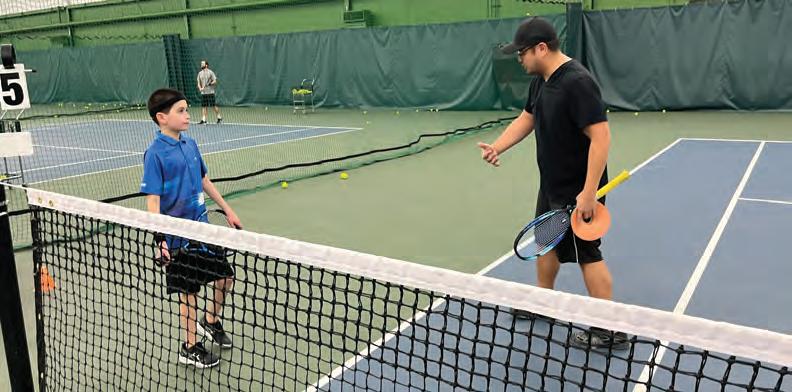
“Tennis for him is a way to get him engaged initially,” Wilhelm said. “We can get him roped in by channeling his affinity now for tennis into a subject like science. We can ask questions: how does the arm moves for tennis, where does the energy come from?”
Staci agrees that tennis has gotten him to read more as he sops up internet statistics on his favorite American players like Frances Tiafoe and pro tour newcomer, Ben Shelton. His new favorite book: Winning Ugly by former Top 10 player Brad Gilbert, a mustread book for any high-intensity player.
Everything about Djokovic’s game appeals to Beck and he tries to emulate the world’s No. 1 player.
“He’s got a great return of serve, and that’s probably my favorite shot as well,” Beck says. “He’s also got an amazing backhand and I like my backhand, too. He’s beautiful to watch.”
Does Beck plan to play tennis in high school, college and beyond?
“Oh yea,” he says. “That’s what I want to do.”

Several new products from the world of tech can help players improve their game, recover from a strenuous workout, emulate their tennis heroes and get more joy on the court.
Pocket Radar can help you add speed to your serve
Want to develop a faster serve? With a speedtracking device from Pocket Radar, Inc. you can see instantly how fast your serve or groundstrokes are hit from a gadget that’s about the size of a cellphone. The device, which measures ball speed from 25 to 130 mph, can be used in handheld mode or with an optional tripod. An audio feature announces your serve speed right after you hit it. The device can store about two dozen data points on the device, or an unlimited number with the free app.
“The Pocket Radar can be used with AirPods and with an Apple watch to view your speeds in real time,” said marketing director Tyler Scaturro. “It pairs via Bluetooth to the free companion app on either an Apple or Android device.”
Massage tools help muscles recover from a tough match
Power Plate, has been innovating in the whole body vibration space for more than 22 years. Power Plate is used by professional athletes including Serena Williams.
Power Plate's vibrating surface forces the body to not only fight against regular gravity but also against vibrations. Studies have shown that working out on a Power Plate activates up to 138% more muscle fibers than a standard workout. In addition to vibrating surfaces for workouts, Power Plate offers a line of targeted vibration products that combine both vibration therapy and soothing pressure to provide relief and accelerate recovery. The Power Plate Roller takes classic foam rolling to a new level with three vibrating modes. The DualSphere is perfect for effective, concentrated massage. The Pulse gun is the manufacturer's most powerful targeted vibration device with 6 attachments. The Mini+ is an ultracompact handheld massager that fits nicely in a tennis bag. https://powerplate.com/

Everyone knows that topspin makes a hard-hit ball dip back down into the court. But learning how to put topspin on the ball is an issue for players of all ages and levels. The Topspin Pro will shorten the learning curve and have you hitting the ball properly almost immediately. Using a ball mounted on a tripod, the Topspin Pro allows players to practice brushing up to get the ball spinning – for both forehand and backhand groundstrokes. With Topspin Pro, you can hit hundreds of balls every day from the comfort of your home or office. https://topspinpro.com
Save your knees with the Pop-It Ball Collector
Don’t let ball pickup spoil your love of the game. The Pop-It Ball Collector may not be a high-tech tool, but it’s a useful one that fits securely on the end of the racquet grip to snag balls off the court. Great for seniors, people with lower back problems and those who just don’t want to bend down to pick up a ball. The device attaches securely to the end of all adult-sized racquets without interfering with the grip or swing. Available in two grip sizes at https://popitpickup.com/.
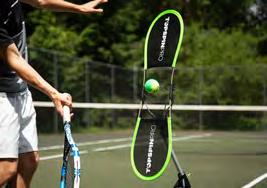
Lift
When the courts are closed or your friends are busy, you can still scratch your tennis itch with a new championship-level game from Kalypso Media. Matchpoint™ – Tennis Championships features authentic gameplay and an immersive, true-tolife on-court experience.


The game features 16 stars from the professional tennis circuit, including Carlos Alcaraz, Nick Kyrgios, and Madison Keys. Matchpoint focuses on tactical realism, positioning and aiming, allowing the player to move their superstar in exactly the right way to get the most out of their shots. You can also create your own tennis pro with different options for your character, choosing your look, fashion and play style (e. g. left- or right-handed, one-handed or two-handed backhand).
Released in 2022 for PC, PS5, PS4, Xbox and Nintendo Switch, Matchpoint will have you doing victory dances in your living room.
The Men’s 55 & Over 8.0 team from Lake Bluff, IL., had just returned from a strong showing at the USTA League national championships in Florida when emails began to roll in. Players from around the Chicago District and beyond were vying for a spot on the team.

“I got a couple of emails from players that said, ‘Hey, I heard your team went to nationals, I’m over 55, here’s my rating,’” says longtime team captain Chip Pew, 60. “They were basically marketing themselves to be on a really competitive team. At some point, everyone wants to make a run for it.”
Picking up players from across the region paid off for Pew, a retired railroad safety expert. His team made back-to-back trips to the national championships in 2021 and 2022.
The success of Pew’s team is an example of the competitiveness of Adult League play throughout the Chicago District, where interest has grown substantially. In 2022, 9,010 adults aged 18 to 77 played in leagues, a 27 percent increase from 2021. Involvement is inching closer to 2019’s prepandemic level of 9,661.
Men and women who join league teams say they enjoy the competition as well as the recreational and social benefits of participation.
“When you have a good competitive group of ladies who want the best not just for themselves but for the team, it works,” says Ayano Nakamura, 33, co-captain of an 18 & Over 4.5 women’s team that won a national championship in 2021.
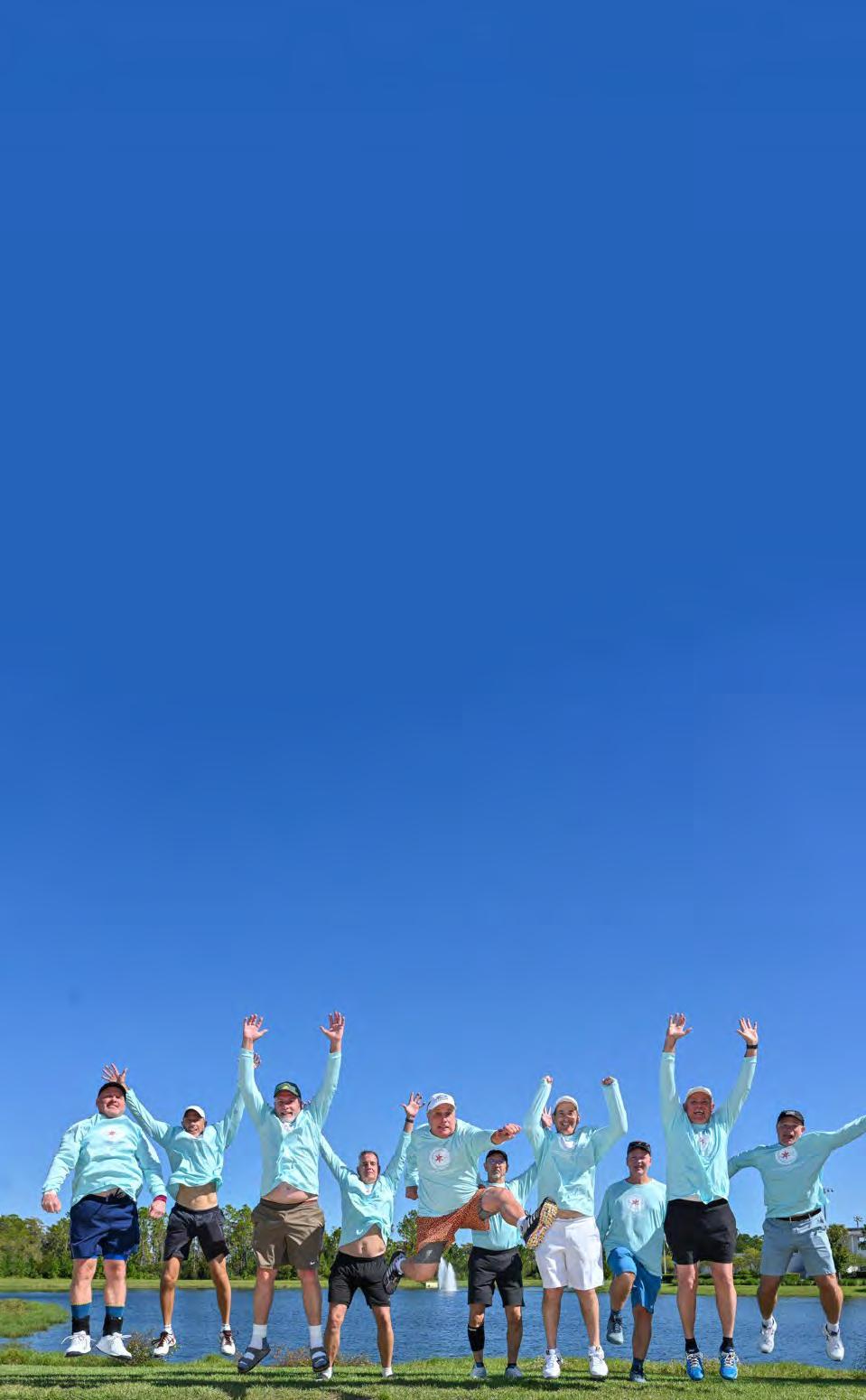
The USTA Chicago District offers league plan for men, women, and mixed gender teams, with competition divided up by National Tennis Rating Program (NTRP) levels of play, from 2.5 to 5.0 and above. The program supports singles and doubles team matches at local clubs and parks throughout the year. Winning teams can advance from local contests to District, State, and Sectional tournaments and then on to the National Championships.
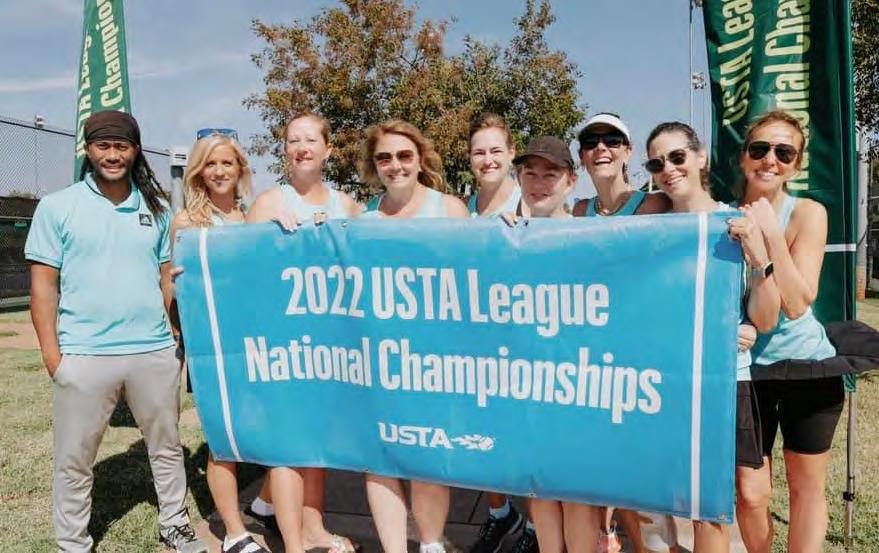
The 18 & Over 2.5 women’s team based at Midtown Athletic Club in Bannockburn has fared well regionally and in the national championships.
Team captain Amy Shappert, a health care lawyer, says that right from the start in the fall of 2021, the goal of the eightperson entry-level team was to win.
“It was always a goal to get to the district competition and keep going,” Shappert said, adding that the team’s confidence was built up by Midtown coaches Sammy Tesimu and Kristin Coy.
“Early on during the regular season, Sammy said he thought we could go all the way,” Shappert said. “Kristin and
Sammy both so much confidence in the team and that trickled down to all the players.”
Playing one singles and two doubles matches, the team was undefeated in both the district championships and the Midwest tournament in August, which catapulted them into the national championships in Oklahoma City in late September where the team reached the quarterfinals of the tournament.
For those interested in getting into tennis at any stage of life, Shappert says USTA team tennis is a good place to start.
“I would say do it,” she says. “A lot of people are busy on different fronts — women with young families, with their careers, some with older children and then empty-nesters. I wish I had started earlier.” She offers this advice: “Don’t be intimidated by it or think it’s a big-time commitment (unless you want to be a captain). You don’t need to commit to play every single match.”
For more information about USTA League Play, contact Tyrin Wages, CDTA Adult Play Coordinator.
In October 2022, Hurricane Ian wreaked havoc on Florida and suspended the 2022 National Junior Team Tennis (JTT) Championships, but USTA Chicago persevered with two strong team finishes.

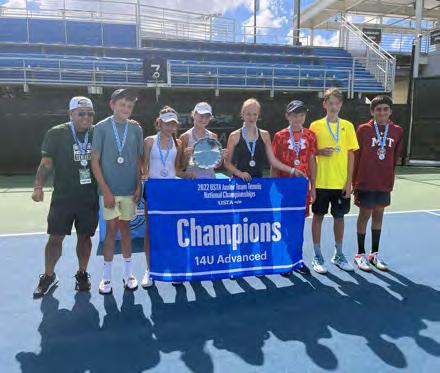
JTT is a team-based program with 8 leagues in Chicago for players ages 7-18. Athletes compete as teams in singles and doubles; most teams consist of 4 players. Nearly 1,000 players representing 110 teams play in USTA Chicago JTT events.
The Chicago District’s Libertyville team, coached by Joe Kim, earned the 14U Advanced National Title. They prevailed over a strong team from Northern California. This was the players first JTT season. Parent organizer, Shane Peirce, said, “I believe JTT is invaluable for young players [because of the] tough competition, on-court coaching, and, most importantly, camaraderie with teammates.”
Oak Brook Tennis Center also represented USTA Chicago at JTT Nationals. This team, coached by Alin Pop, entered the 14U Intermediate division. The team has made it to MW Sectional Championships each year in Orange, Green and 12U. Now was their chance at Nationals where they finished impressively in 5th place.
“It was nice for our team to travel and compete together at the 14U Nationals, a goal they worked hard for since 10U Orange Ball,” said Coach Pop.
For information about JTT, contact Barb Rueth, CDTA Junior Play Director.
A nearly 33 percent growth in tennis participation during the past three years has generated immense demand for coaching, court time, and competition, paving the way for robust career opportunities on court and behind the scenes.
As a result, tennis industry career opportunities abound, with employment options that cross many different professional disciplines. They include: tennis instructors, facility tennis directors, sales and marketing for tennis equipment manufacturers/retailers, court builders, facility managers, team coaches at all education levels, communications, and officials/referees.
One way to get started is to learn the business by becoming a club teaching professional. This grounding can help people decide what direction to take their career.
“The skill set and the discipline developed in traditional coaching prepare
people for so many other potential career opportunities in tennis,” says Mark McMahon, a career coach and certified Master Tennis Professional.

John Embree, CEO of the U.S. Professional Tennis Association says, “We have so many people looking for quality teaching at clubs and facilities around the country, but we don’t have enough professional staff to meet demand,” Embree said.
Tennis players can become certified as tennis instructors through courses at the USPTA or the Professional Tennis Registry (PTR). From there, people will touch on many aspects of the sport –honing their skills as an instructor, but also meeting equipment manufacturers, working with club staff to maintain the facility, and running tournaments, said McMahon.
McMahon’s tennis journey is an example of how to move from instructor to other
industry roles. A top player as a youngster, he hoped to become a professional tennis player, but wasn’t able to fulfill his dream.
“What brought me from Australia to America was wanting to be a professional tennis player,” he says. “I always had a strong affinity and respect for those who introduced me to the sport. And I had one coach pretty much my entire junior career. And I said I can be just like my coach, and I pursued that, and I was good at that.”
After coaching for several years, McMahon moved into equipment marketing as a consultant for Prince, he later became a tennis director at private clubs and also served on the USPTA Board of Directors about a decade.

Today, he works with individuals and private clubs in hiring tennis directors who, in his words, “will lead their program to greatness.”
High school students interested in the business side of tennis can check out the USTA website which lists a handful of universities offering four-year bachelor’s degree programs in tennis management. These
programs provide academic instruction and hands-on training through internships from on-court instruction to facility operations. Graduates of programs like these will be prepared for careers as a tennis teaching professional, club manager, director of tennis, pro shop manager, and other business and hospitality leadership roles. Officiating tennis is another way to be involved in the game professionally. The path to officiating tennis begins locally but can lead to involvement on bigger stages.
“If you want to be in the club business, get a degree from a hospitality school,” Embree says. “It’s a great degree to have if you eventually want to be a country club manager or the front office manager or the house manager.”
The enormous growth of tennis has opened the door for people to consider a career path in tennis that will take them from the classroom to the courts and beyond.
“I would encourage parents to think about tennis as a viable career for their child,” Embree says. “If they have a great personality, are dedicated to the game and have a passion for the sport, there’s a career in tennis.”
Tennis enjoyed a boost in participation during the pandemic. If you didn’t join in then and are thinking about getting on the courts for the first time ever or just the first time in awhile, the guide below should help you get started.
What do you need to play tennis?
At the most basic, you need a tennis racquet and balls. A court is ideal, but a wall next to a concrete surface can do in a pinch. The right footwear for the court is important also. You want tennis shoes that provide good support and that do NOT have black soles, which can permanently mark up the court.

How do you choose a tennis racquet?
The best way to find your perfect racquet is trial and error. Most tennis centers or retailers (even online ones) allow you to “demo” a racquet at a nominal charge. The main thing to think about is the size of the grip or handle. Choose a grip size that’s comfortable, but keep in mind that a too-large grip size will force you to squeeze the racquet more tightly, tiring your forearms.
What are the basic types of tennis shots?
The ones you’ll use most as a beginner are the forehand, backhand, volley, and serve. The USTA has tips and instructions for improving tennis on its website and a plethora of instructional videos can be found on YouTube as well.
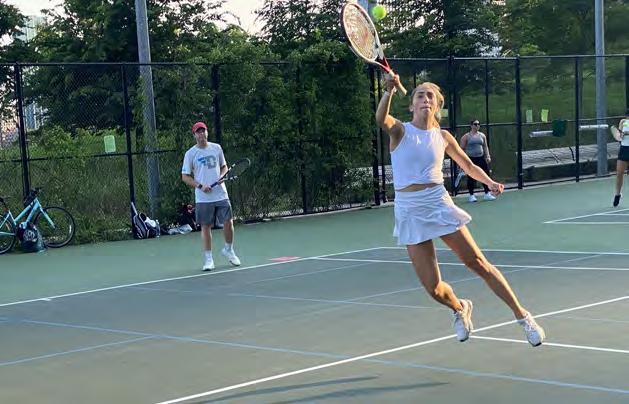
How do I keep score in tennis?
If you’re a true beginner and just playing for fun, it’s totally fine to score points as you would any other sport, awarding a point to the player who keeps the ball in bounds without hitting the net while rallying.
But if you’re ready to go legit, you may need to study up on tennis’ unique scoring system. It all starts with “love” which means nothing to tennis players . . . literally. A helpful mantra to repeat is “game, set, match.” You’ll play one game at a time. To win a game you must win 4 points before your opponent. But you don’t count points 1, 2, 3, and 4. The first point scored is counted as 15 followed by 30, then 40, then game. But if both players win 3 points, the score would be 40-40, also known as “deuce.” If a game score is tied at deuce, the only way for it to end is for one player to win two points in a row. If player A wins the point at deuce, then they are considered to have the “advantage.” But, they can quickly lose the advantage if their opponent wins the next point. Then, the score goes back to deuce until someone wins back-to-back points. The first player to win six games wins the set. The first player to win two out of three sets wins the match.
Not interested in the score and just want a good workout?
Give Cardio Tennis a try! Cardio Tennis is a high energy fitness activity that combines the best features of the sport of tennis with cardiovascular exercise, delivering the ultimate, full body, calorie-burning aerobic and anaerobic workout. If you've never played tennis before it is a great way to be introduced to the sport and if you are an experienced high-level tennis player, Cardio Tennis is the best way to train for tennis. Several providers in the Chicagoland area provide Cardio Tennis classes which are characterized by games designed to keep you moving and give you as many “touches” on the ball as possible. Agility ladders and markers as well as upbeat music help keep the class high energy.
Want to avoid looking like a complete beginner on the court? Keep these things in mind:
• Don’t assume! Make sure to call the ball out—always after it’s bounced—so that you are on the same page as your opponent. It’s also important to make sure both players know the score before the start of each point (it is the server’s job to call out the score). Remember, if the ball hits you or your racquet before it bounces when your opponent hits it over the net – even if it was clearly going to be out – you lose the point (unless you hit the ball back over the net with you racquet).
• Be strategic! Don’t try to hit the ball as hard as you can. Instead, just try to aim the ball over the net or place it strategically. Many points are lost due to errors so make your opponent hit the ball back.
• Know the court! When playing doubles, the entire court is at play. But if you’re just playing singles, the two “alleys” running along the left and right outsides of the court are considered out.
If you are getting into the swing of things (pun intended), and want to develop your game further, you may want to spend some time with a coach, either in a group or oneon-one session. When searching for a tennis coach for an adult or child, it is important to look for Professional Tennis Registry (PTR) or United States Professional Tennis Association (USPTA) certified coaches. Both PTR and USPTA are the accrediting bodies for tennis teaching professionals.

Certified coaches have passed tennis teaching courses and have learned the most current methods of teaching, nutrition, and off-court training. These pros are skilled in technical, tactical, mental, and physical development for tennis athletes.
In addition, certified coaches must have completed SafeSport training to help safeguard athletes from misconduct. The USTA has adopted and implemented the training and educational materials developed by the U.S. Center for SafeSport to inform tennis teaching professionals how to prevent misconduct with their players.
One way to start your search is to go to the USTA’s netgeneration.com and click on the “Search” button to look for a Net Generation SafeSport trained coach.

Several organizations in the Chicago area that work hard every day to give people from all backgrounds the opportunity to play. USTA Community Tennis Associations (CTAs) are not-for-profit, volunteer-based organizations that support programs that grow tennis. Some CTAs offer only one program, tournament or special event; some run a tennis program at a specific facility, and some simply fundraise to support the game. In the Chicago area, CTAs play an important role as entry points if you’re looking to get started in the game, find more play opportunities or to give back to this lifetime sport.
In 1969, the National Junior Tennis League (NJTL) was created by the USTA as a way to gain and hold the attention of young people, with the hope of teaching them the importance of character, getting an education and becoming productive adults. Today, the NJTL network is comprised of youth development organizations that offer free or low-cost tennis and education programming to under-resourced youth.
Our Chicago District CTAs and NJTLs described below play an important role in developing tennis in neighborhoods, gyms, parks and schools. Some offer afterschool tutoring that also focuses on academic enrichment and life-skills curriculum along with tennis.
• The ACE Project nurtures children living in underserved communities by building character, confidence, and competency through the sport of tennis.
• Barrington Area Tennis Association runs instructional programs for youth in Barrington including Buddy Up Tennis, a high energy adaptive tennis and fitness program for children and young adults with Down syndrome.
• Chicago Park District Tennis Association has been running an adult team-based summer league in the parks for more than 75 years.
• Chicago Prairie Tennis Club focuses on the development of junior tennis players, believing that youth involvement in the game of tennis assists in the development of character, social skills, sportsmanship and discipline. Summer programming takes place at Lake Meadows Tennis Center on Chicago’s south side.
• Evanston Community Tennis Association coordinates leagues, tournaments, and recreational events throughout the year for tennis enthusiasts in Evanston.
• Great Lakes Adaptive Sports Association (GLASA) strives to ‘Let No One Sit on the Sidelines,’ operating under a mission to promote and support the optimal development and well-being of youth, adults and military veterans who have a physical or visual disability through the provision of inclusive recreation, fitness and competitive sports.
• Love to Serve, Inc. provides quality tennis and education programs that contribute to positive youth development, improve student academic outcomes, and build knowledge and skills for future success in college and careers.
• Maywood Tennis Association works with area youth teaching them the game of tennis and helping them to pursue success both on and off the courts.

• Midwestern Tennis Association (MID-TAC) is the Midwest Section of the American Tennis Association (America’s oldest African American Tennis Association), an organization that uses tennis as a vehicle to cultivate strong family values.
• Multicultural Tennis Association, Inc. seeks to raise the profile of tennis in local Spanish-speaking communities.
• Second City Tennis is focused on creating and supporting social and competitive tennis programming for Chicago LGBTQIA+ and allied communities. SCT hosts the Second City Tennis Classic, the largest tournament in the region sanctioned by the Gay and Lesbian Tennis Association.
• Serving Up Hope (SUH) provides tennis and STEM programming for underprivileged children with programs located in Uganda, Los Angeles, San Francisco, Ft. Lauderdale, and Chicago. SUH is led by professional tennis players including Vania King, the organization’s founder.
• Sports for Life is a provider of sports management to grow and develop the game of tennis to people of all ages and abilities by offering tennis, fitness and sports camps in the Chicagoland area.
• Tennis Opportunity Program, Inc. (TOP) provides academic and athletic training so its kids can achieve excellence beyond the tennis court.
• Topspin and Violins (T&S) removes barriers by making tennis and music education available to all children in the western suburbs of Chicago. T&S instructional programs for youth take place in local parks and schools on a year-round basis.

• XS Tennis and Education Foundation strives to introduce as many underserved Chicago youth as possible to tennis with the intention of guiding them down a pathway to college through attainment of a tennis scholarship and sustained excellence thereafter. XS Tennis is open to everyone; full scholarships are available for Chicago Housing Authority (CHA) residents and income-based scholarships are available to others.
• Youth Education Sports (YES) works to improve the lives of Evanston youth through tennis and academic assistance, creating opportunities for children, especially those with limited resources and those needing extra help in school.
Forming a new CTA is a huge, but rewarding, undertaking. It involves ongoing coordinated efforts by a group of dedicated tennis players who want to serve their community. If you are interested in forming a CTA, find out more by emailing info@chicagodistricttennis.com.
If starting a new organization isn’t in the cards for you, the organizations above may be able to use your passion for tennis in a volunteer role. Check out our business listings on page 8 to find contact information.

USTA Chicago’s Ace Awards program recognizes dedicated and passionate promoters, supporters, and providers of the great game of tennis. In 2022, more than 100 nominations in 11 categories were received. All of the nominees were reviewed by USTA Chicago and nine were honored with awards in the following categories:
Marion Thompson, Darien
Marion has been a captain in the Chicago District since 2010. In 2021, after yearend rating were run and Marion's new rating no longer allowed her to play on teams that she had captained for years, Marion continued to captain several teams even though she could not participate as a player on them. Without Marion's dedication to the league program and the love of the game, many others may not have been given the opportunity to continue to play.
Gene Huh, Chicago
Marco Reynoso, Chicago
Gene and Marco organize a play group affectionately call TBD – “Tennis, Beer, Tacos.” Gene and Marco have been running TBT for 10 years. They organize events, tournaments and captain USTA teams. Marco and Gene organize weekly drills and match play for a group of players from the city and suburbs.
Amanda Hanon, Darien
Amanda earned this honor in her rookie year as a tournament director. Amanda, the founder and owner of Tennis Titans which introduces tennis to children at community locations such as: local schools, churches, or park districts, expanded her business model into running USTA tournaments in 2022. She spent 14 weekends over the summer running 50 events which enabled more than 600 players to compete.
Marilyn Goldman, formerly of Chicago
Marilyn has been a USTA official for almost 20 years. Her extensive experience as an organizer, as well as her abilities as a team leader, have provided her with the opportunity to advance into high level positions in the tennis officiating world at events such as IHSA Boys and Girls State championships, CDTA District Championships, National tournaments, and ITA college dual matches. Marilyn always sends players out to court, whether as an official or as a tournament director, telling them to “have fun.”
Mark Bey, Chicago
Mark Bey, a distinguished player himself at DePaul University has been coaching in the Chicago area for more than 30 years. He has helped local Chicago players achieve greatness having coached 8 players to the #1 USTA national ranking, 11 to ATP/ WTA rankings, and 17 of his former students went on to NCAA individual championship participation, including 2 national champions. Mark also was the former assistant coach for retired pro players, the Bryan brothers. In addition to his work with high performing juniors at Glenview Tennis Club, Mark has an impressive resume of work commentating on the NCAA Division I college matches on the Tennis Channel and ESPNU. Mark was inducted into the United States Professional Tennis Association (USPTA) Midwest Division Hall of Fame in 2017.

Fely Ong, Homewood
Fely received this award for the first time in 2013 and has continued to be a cornerstone of CDTA’s — and the Midwest Section's — volunteer team. She has been a member of the CDTA board for 9 years. During that time, she has helped run tournaments, adult league activities and organized adaptive and wheelchair programming. She has been devoted to growing tennis in the south suburbs out of HF Racquet and Fitness Club but also in partnership with groups like the Shirley Ryan Ability Lab, the iCan Dream Center and the Special Olympics.
The Skokie Tennis Association (STA) has been in existence since 2015. STA came to existence because Ann Tennes, one of its founders, was working as the Director of Marketing and Communications for the Village of Skokie, and in a spring 2014 focus group with local residential real estate professionals, it was suggested that the community could use more recreational sports leagues. As an avid tennis player, Ann seized the opportunity to propose a tennis league. Ann and her husband Howard created the STA as a recreational not-for-profit organization. The league officers all serve as volunteers that encourage a fun experience that offers competitive play for a variety of levels. In 2017, STA donated a portion of its proceeds to fund children’s scholarships for Skokie Park District tennis camps and classes.

Melissa Kress (deceased)
Melissa tried for about 10 years to get a wheelchair tournament started in the Chicago District. In 2013, it finally happened when she hosted the inaugural Chicago Wheelchair Classic with 18 players. This annual event attracts players from all over the United States as well as other countries. In 2016, this tournament became an International Tennis Federation (ITF) Futures event. Due to a serious illness, 2019 was the last year Melissa was able to run the tournament. What was most memorable for one nominee about Melissa and the Chicago Wheelchair Classic was the caring, friendly and fun attitude she showed towards her volunteers, players and their families. She recruited more than 150 volunteers to assist her with all of the details associated with running an ITF event. Melissa worked at the Hanover Park Park District for nearly 18 years.
Kevin Minor Family, Mundelein
Kevin was a pinnacle in the Chicago tennis community, raising three Black women who became NCAA Division I tennis players. Minor spent his entire life advocating for children in the sport. His service was not only to the USTA, but to dozens of families who have navigated the junior tournament landscape. Kevin was always happy to provide advice: how to get started playing, where events were taking place and more. He and his wife, Michelle, raised their daughters to use tennis to achieve their dreams. Their eldest daughter, Kristina, is an associate athletic director at Northwestern University, while Jasmine is an Emmy Award-winning television reporter in Indianapolis. Brienne won the NCAA Division I Women's Tennis Championships in 2017, becoming the first Black woman to win the singles title.
When Kevin died suddenly in 2022, his family rallied to solidify his legacy by creating a scholarship fund in his name. Those funds will go towards supporting the training and travel for a Chicago-based junior tennis player and their family. Kevin Minor knew all too well the sacrifices necessary to raise elite studentathletes. He estimated that on average, the cost of a child from ages 8 to 18 who go on to play college tennis is about $300,000.

GRAND SLAMS
Australian Open
January, 16-29
French Open
May 28-June 11
The Championships, Wimbledon
July 3-16
US Open
August 28-September 10
TEAM EVENTS
Davis Cup
Qualifying: February 3-5
Group: September 12-17
Knockout: November 22-26
Laver Cup Vancouver
Team Europe vs. TeamWorld
September 22-24
Billie Jean King Cup
Qualifying: April 14-15
Finals: November 7-12
Play-Offs: November (TBD at press time)
BNP Paribas Open

March 8-19
Indian Wells, CA
Miami Open presented by Itau
March 22-April 2
Miami, FL
Credit One Charleston Open (women)
April 3-9
Charleston, SC
Mubadala Silcon Valley Classic (women)
July 31-August 6
San Jose, CA
Citi Open
July 31-August 6
Washington, DC
Western & Southern Open
August 13-20
Cincinnati, OH
The USTA is the national governing body for the sport of tennis and the leader in promoting and developing the sport’s growth on every level in the United States, from local communities to the crown jewel of the professional game, the US Open.
The USTA is a progressive and diverse not-for-profit organization whose volunteers, professional staff and financial resources support a single mission: to promote and develop the growth of tennis. The USTA is the largest tennis organization in the world, with 17 geographical sections, more than 680,000 individual members and more than 7,000 organization members, thousands of volunteers and a professional staff dedicated to growing the game. USTA Chicago/the Chicago District Tennis Association is a district within the Midwest Section. The Midwest Section is the second-largest section of the USTA and is comprised of Illinois, Indiana, Ohio, Michigan, Wisconsin, and part of West Virginia and Kentucky.
To serve the sport at every level of play, the USTA debuted the USTA National Campus in January 2017. The Home of American Tennis is a 98-court tennis facility near Lake Nona in Orlando, Fla., that continues to redefine how the USTA delivers on its mission and provide a new vision for the future of tennis in the U.S. Approximately 300 collegiate matches take place at the National Campus and more than 35 programs are offered.
All ages. All grunts. All zip codes. All across America. On all sides of the net. Singles. Doubles. Newbies. Pros. Forehands. Backhands. Everyone. Every background. Every story. Every hairstyle. Even the mullet.
From hardcore athletes to lazy athletes alike. (Don’t tell anyone, but there’s a tiny tennis court hidden inside every regular tennis court.)
If you can smash things, you can tennis. So what are you waiting for?
Let’s Tennis.


workoutto

Cardio Tennis is a high energy fitness activity with music that combines the best features of tennis with cardiovascular exercise, delivering the ultimate, full body, calorie burning aerobic workout.
All levels.
Find out where you can participate in the most fun workout around at usta.com/Chicago/cardiotennis.



Junior Team Tennis is the largest youth tennis program in the country helping boys and girls, ages 6 to 18, play singles, doubles and mixed doubles against other coed teams.

Players learn about unity, sportsmanship and how to work together to achieve success. They also learn that success isn’t just about winning; it’s about how you play the game and respond to challenges.
To get in the game, contact b.rueth@chicagodistricttennis.com.




The USTA/Midwest Tennis & Education Foundation makes a direct impact in communities throughout the Midwest by providing funding and increasing accessibility to tennis and education opportunities for youth and players with disabilities.

$225,000+ to player & program grants & scholarships

$130,000 to enhance the awareness, visibility & representation of diverse populations & multicultural communities
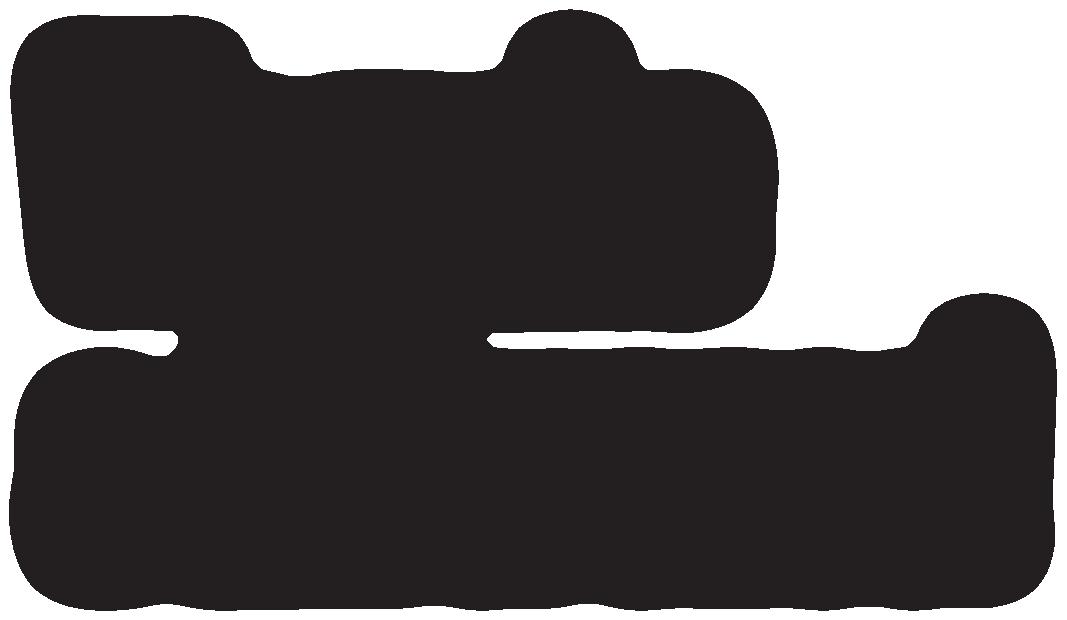
$100,000
to bring tennis to under-served areas of Illinois through the Laureus Foundation
Scan the code to help us continue to make a difference in the Midwest through tennis and education.
midwesttennisfoundation.com usta.com/midwest
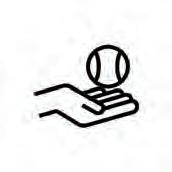








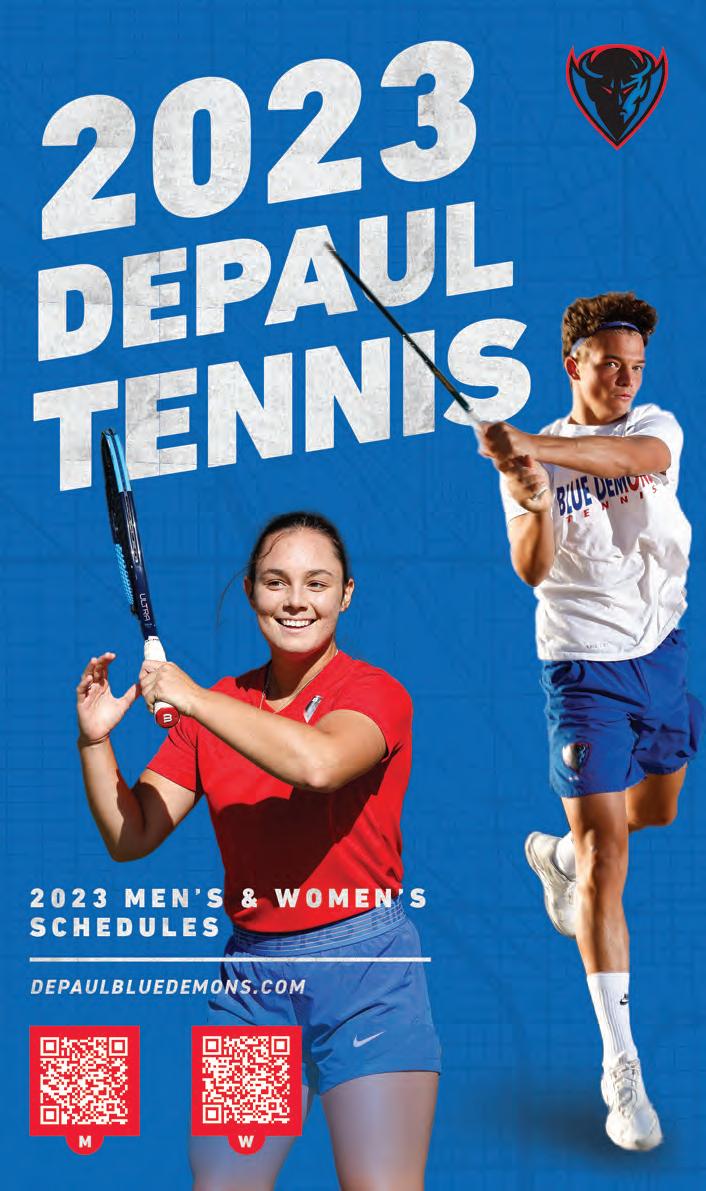
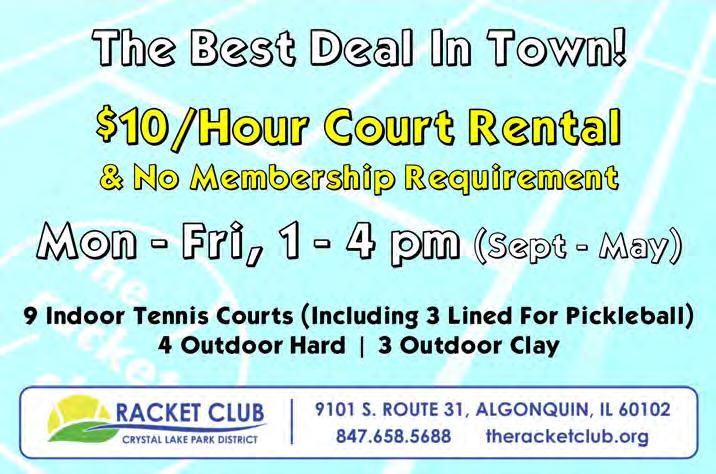
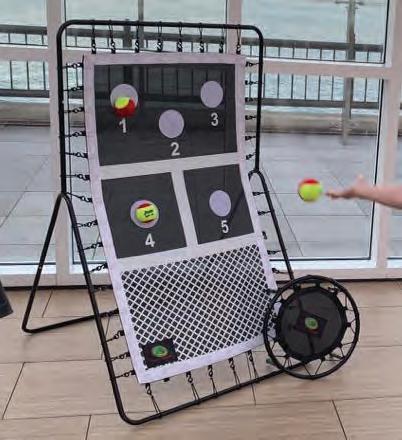




The mission of Serve and Return Chicago is to positively impact the lives of children in Chicagoland’s underserved communities through the game of tennis. We believe tennis is an inclusive, life-long source of physical, mental, and emotional well-being. The funds we raise support outstanding youth programs that provide equipment, education, instruction and fun competition in safe environments.

Go to www.serveandreturnchicago.org to learn more and find out how you can support our efforts!



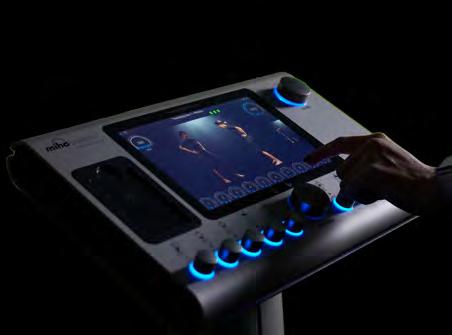

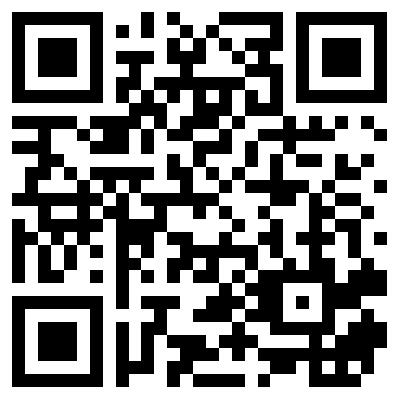
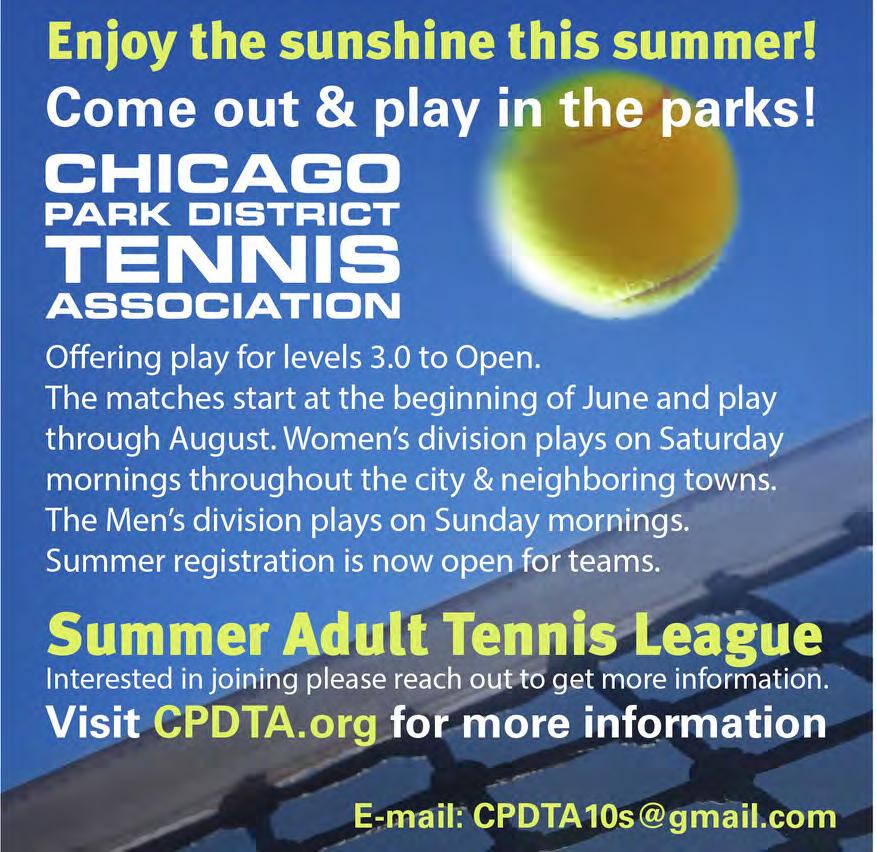











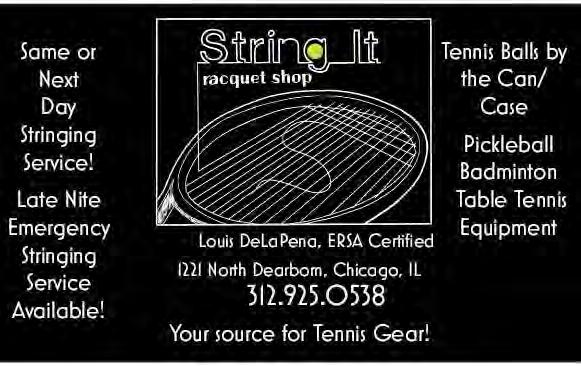
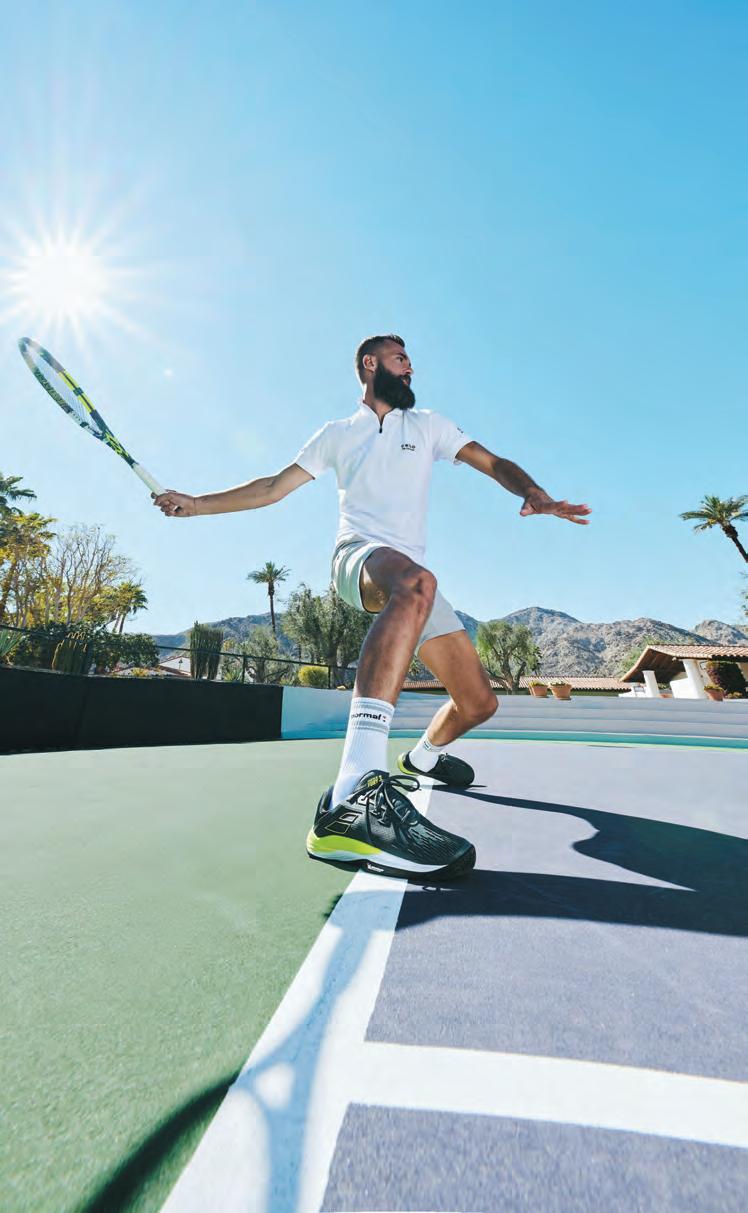


Play for everything. Play for nothing. Play to join. Play to escape. Play to win. Play to learn how to lose. Play to prove. Play to improve. Play to show them. Play to show yourself. Whatever you play for, however you play. Play inspired.

